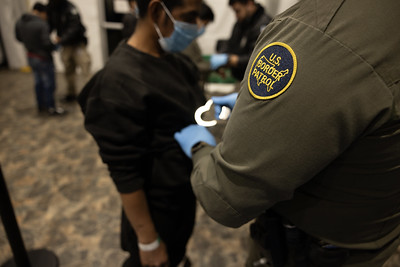On Aug. 2, the Princeton Review listed Northeastern on their Green Honor Roll, having achieved the highest possible score for environmental friendliness in the organization’s 2011 college rankings. Joining 15 other colleges and universities across the country, Northeastern is credited with its efforts in getting numerous campus buildings LEED Gold certified, including the efficiently-designed International Village complex, and the successful composting program run through the campus dining halls.
Last week, Northeastern took another step toward bolstering its reputation as an environmentally-friendly school. Northeastern joined New Balance, the City of Boston and a dozen other companies and institutions in sponsoring the launch of Hubway last week, a bike sharing system across the city.
As part of the program, Hubway placed a station in Northeastern’s North Parking Lot on Hemenway Street. Nearby stations easily accessible to the Northeastern community are located at Ruggles Station at Columbus Avenue, the Christian Science Plaza and Brigham Circle.
Northeastern’s involvement in Hubway is a smart move, even beyond improving its green credentials. Their involvement in the program is a strong endorsement in improving the health of both students and community members. Hubway provides on- and off-campus residents convenient alternatives to the oft-maligned E Line. The 24/7 nature of the program will certainly appeal to students fond of enjoying the city past the subway’s self-imposed 1 a.m. curfew – which will, no doubt, lead to the occasional intoxicated student making a poor decision to save on cab fare. The program will only be open for spring, summer and fall, with stations closing and bikes removed from the street in the winter.
Hubway will need to quickly build a solid user base in order to show its financial and social viability. A yearly membership has been discounted to $60 in order to attract early adopters, and customers can purchase one- or three-day memberships at any Hubway station for $5 and $12, respectively.
While a membership is less expensive than its MBTA equivalent, the final costs could be hefty. Each bicycle rental is free for the first half-hour, with usage fees escalating continuously for every half hour the bicycle is not returned up to $100 for seven hours late. All users must use a credit card, and renting a bike at a kiosk results in a $101 security deposit hold that can tie up the user’s funds for up to ten days.
In addition, users are required to wear helmets as a condition of renting the bicycle. Part of the system’s launch includes the placement of low-cost helmets in retail outlets and bike shops across the city, and those purchasing yearly memberships online can pay an extra $18.62 to have a helmet shipped alongside the membership key that unlocks bikes from their stations. While some partners feature helmets in their stores, such as Children’s Hospital and the Prudential Center, Northeastern’s on-campus bookstore does not sell helmets.
The greatest potential problem with the Hubway system, however, rests in the nature of cycling in the city. Boston’s notoriously tricky streets and aggressive drivers are threatening to even the most experienced cyclist. New users of the Hubway system, unfamiliar and inexperienced with city cycling, may find themselves endangering themselves and others.
Hubway is a smart idea, but turning hundreds of new cyclists loose in the city without any rentable safety gear is a potential recipe for disaster. The system may be environmentally friendly and energy efficient, but until its users get educated on safe riding Hubway may find itself on rough terrain.









